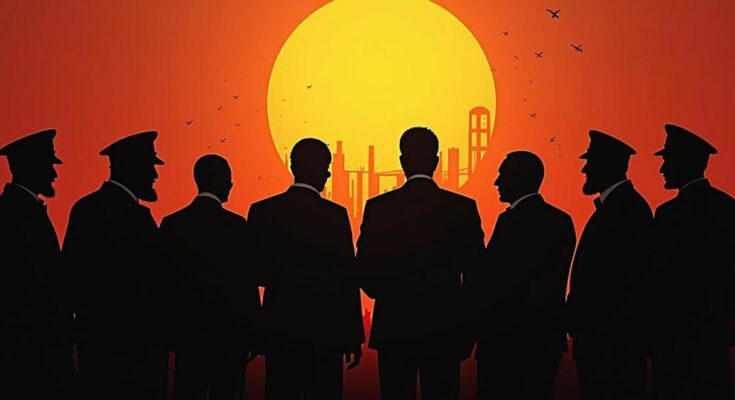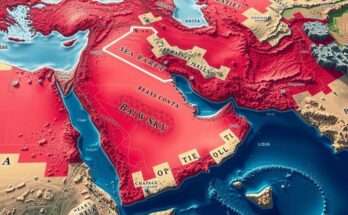In the past week, Israeli airstrikes have resulted in the deaths of seven high-ranking Hezbollah officials, including the group’s leader, Hassan Nasrallah. This escalation raises concerns about the stability of Hezbollah, a major force in Lebanon’s political and military arena, as it struggles to respond to these significant losses in its leadership.
In a dramatic escalation of the ongoing conflict in the Middle East, seven high-ranking officials from Hezbollah were killed during a series of targeted Israeli airstrikes within the past week. Among those lost was the prominent leader of Hezbollah, Hassan Nasrallah, whose death has sent shockwaves throughout Lebanon and the broader region. This series of events follows Hezbollah’s recent military engagement in support of its ally, Hamas, amidst the backdrop of heightened tensions following the latter’s surprise attack on southern Israel. The deceased officials include Nabil Kaouk, Hezbollah’s Central Council deputy head and a potential successor to Nasrallah; Ibrahim Akil, a key commander of Hezbollah’s elite Radwan Forces; Ahmad Wehbe, also a commander of the Radwan Forces; Ali Karaki, who oversaw the southern front of Hezbollah’s operations; and Mohammad Surour, who headed the group’s drone unit. Additionally, Ibrahim Kobeissi, who led the missile unit and has ties to historical attacks against Israel, was among those killed. Furthermore, several other senior commanders have also been lost in previous months due to Israeli military actions directed at Hezbollah’s leadership.
Hassan Nasrallah has been at the helm of Hezbollah since 1992, transforming the organization into a formidable political and military entity in Lebanon. His leadership has been marked by various regional conflicts and an expansion of Hezbollah’s influence, particularly in the context of the Syrian civil war. The recent strikes mark a significant shift in the power dynamics between Israel and Hezbollah, traditionally seen as one of the most influential militant groups in Lebanon. The loss of key leaders raises questions about the future leadership and operational capacity of Hezbollah as the organization grapples with these critical blows.
The recent killings of Hezbollah leaders, particularly that of Hassan Nasrallah, represent a pivotal moment in the ongoing conflict between Israel and Hezbollah, signaling a severe setback for the militant group that has wielded considerable influence in Lebanon since the 1980s. As Hezbollah endeavors to recover from these losses, its future operations and political strategies remain uncertain. The complexities of the conflict underscore the unpredictable landscape of Middle Eastern geopolitics in the wake of these significant developments.
Original Source: www.manilatimes.net




